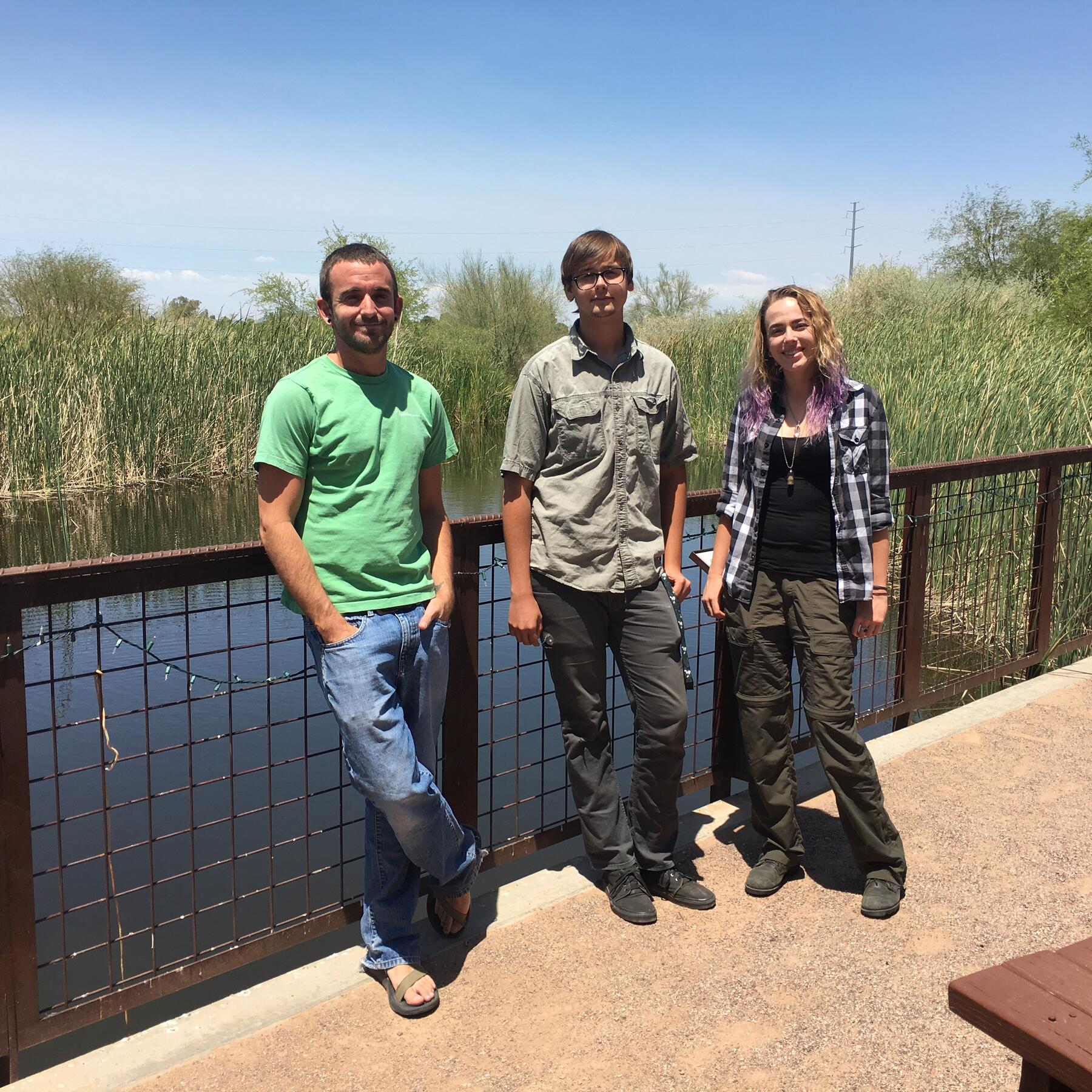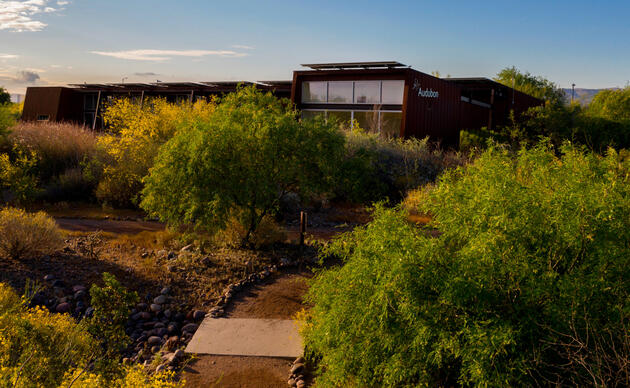Audubon Arizona’s River Pathways program was developed to get students outdoors, introduce them to Arizona’s native habitats, and build their interest in careers managing public lands. And thanks to a partnership with the Bureau of Land Management and the financial support of the APS Foundation, over 800 Valley high school students have benefited from hands-on conservation work since the program began in 2013. This month, the APS Foundation announced a $25,000 grant for the program, bringing the total program contribution to $101,000.
River Pathways combines classroom-based instruction about river-focused habitats with authentic, needed field work, providing underserved youth with highly relevant opportunities for students to gather data about species and water. Data are then used to protect the environment. Students conduct hands-on habitat assessments, including measurement of water flow and related conservation activities.
“The River Pathways program was designed with science teachers to integrate with Arizona high school science courses that focus on STEM (science, technology, engineering, and math). Participants also learn about field biology careers and related high school and college preparation,” said Tina Marie Tentori, executive director of the APS Foundation. “The APS Foundation supports programs such as this one that introduce STEM curriculum to underserved populations through hands-on projects and prepare them for future STEM-related careers.”
The multi-lesson River Pathways curriculum River Pathways has received two awards from the U.S. Department of Interior, and a prestigious Arizona Forward Crescordia award for excellence in environmental education. But the program's greatest achievement is found in the lives of its participants- people like Brian Pacheco.
Brian's experience exemplifies what River Pathways is meant to do: provide hands-on experiences in nature education that lead to increasing levels of knowledge, depth, ability, and commitment.
Brian grew up in a low-income area of central Phoenix, attending Carl Hayden High School and thinking that his career path might focus vaguely on electronics. Then he got outside, with Audubon teacher-naturalists helping open a whole new world.
Two summers as an Audubon Arizona River Pathways participant--trekking through the Agua Fria National Monument and elsewhere to document bird species and the health of diverse habitats--formed Brian's passion for conservation action and the outdoors. The 19-year-old then served as the Lead Intern for River Pathways, working with younger students in the program to inspire them to consider careers in science and the outdoors.
He speaks glowingly of his field work experiences, from building pens for pronghorn antelope in Ajo, to helping masked bobwhite quail find homes in special coops, to spying baby hawks on the wing. Brian's list of accomplishments is extensive--a powerful driver of his determination to go as far as he can as a conservation professional. Brian also cites how River Pathways was all-inclusive in its approach, generously providing all needed tools and equipment.
"There's so much beauty out there. It's more than a passion, it's a lifestyle I want," Brian says. The River Pathways Program operates with help from the APS Foundation to help preserve more wildlife, and inspire many more young people like Brian to follow their dreams in nature.
In the three-stage River Pathways program, participating teachers are first given five classroom modules focused on riparian ecology and resource management that serve as a guide to classroom learning. This is followed by a field trip to the Nina Mason Pulliam Rio Salado Audubon Center, where students are trained in monitoring techniques used by scientists in the field. Finally, the class goes on a second field trip to the either the Agua Fria National Monument or Tonto Natural Forest, where select students have the opportunity to apply their new knowledge to conduct field studies with biologists from the Bureau of Land Management.
After the second field trip, Steven Prager, the teacher/naturalist who runs the River Pathways Program, says students are then given the opportunity to apply for summer internships with Audubon Arizona and Bureau of Land Management staff during our annual Yellow-Billed Cuckoo surveys along the Agua Fria River.”
Prager explains the program is primarily focused on the Phoenix Union High School District, but that Audubon Arizona is always looking for more schools get involved. Teachers interested in learning how they can get their students out of the classroom and into the field should contact him via email at sprager@audubon.org.



